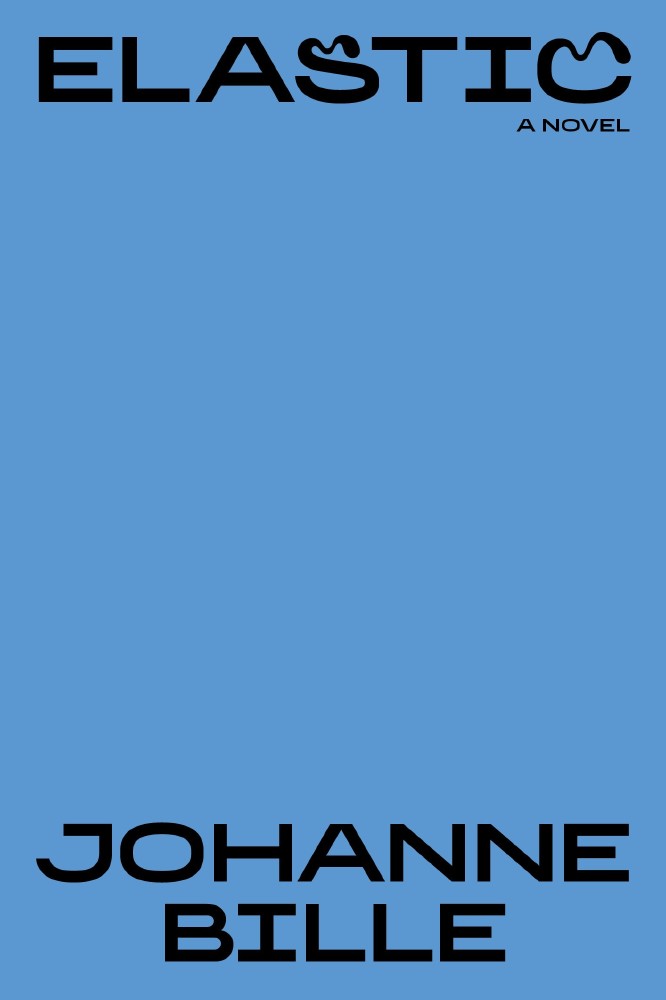I live in Copenhagen. I grew up in Frederiksberg, which is an independent municipality located within Copenhagen. The city is really important to me as a setting, and both of my novels take place in Copenhagen.

Elastic
I’m fascinated by the process of re-writing classic stories to the point of unrecognizability. While I was working on Elastic, I was drawn back to Alice in Wonderland, and especially to the figure of Alice. I believe that the voice of this little, adolescent girl has the potential to speak truths and to shed new light on complex problems. Elastic is a work in its own right, but Alice in Wonderland played a vital role in my writing process. References to Alice are scattered throughout the book like little Easter eggs, little affinities the reader can hunt for.
In 2018, I co-founded an independent publishing house called Harpyie with my former colleague, Sidsel Andersen. We mainly publish literature in translation that takes society to task and experiments with form. When I look at our forthcoming titles, I can't help but feel proud: Harpyie is bringing important voices to Denmark one book at a time, in collaboration with a group of very talented people. Harpyie's first books will be published at the beginning of 2020.
I love to read while walking. It’s taken some practice, but I’ve developed a pretty good technique, so I don’t endanger myself or others. It lends a completely different feel to the experience of reading. It’s almost as if I can sense the narrative moving into my body. It settles inside me in a different way. I can highly recommend trying it barefoot too.
I don't like lasts: the last sip of beer, the last bite of a meal, the last page of a book, the end of a relationship. I think I’m ending-averse. Endings are unavoidable and almost always unsatisfying. When I have to write endings to my own work, I often end up re-writing a passage from earlier on in the text. That way, I can avoid writing an ending as such.My first novel, Tænk nu hvis (Imagine If), was published when I was 21 years old. It’s a book that is mainly about men. My father passed away when I was 19, and his death coincided with a period in my life where my relation to men was changing. That's what my first book is about.
I didn’t plan to write Elastic. Following my first novel, I wanted to write a novel about the relationship between human beings and nature. It was supposed to be about a man and a woman who lived out in the woods. But the female character in the novel didn't abide by me. She was narcissistic, dramatic, at times naïve. In her own way, she behaved like a little girl. It was as though this voice took over the novel, and I felt ashamed by it. Every time the voice appeared in my writing, I cut the passages and moved them into another document. One day, I realized that I needed to take this woman’s voice seriously, even though it wasn't pretty. And out of that exploration, Elastic came into being. I think that’s an important aspect of being a writer: to explore the aspects of being human that you would actually rather conceal or ignore.
I have a degree in political science, which has had a strong influence on my authorship. Much of my writing is concerned with power, norms, and social structures.
I don’t have an MFA or any formal training in writing, but my father was a writer and a journalist. Growing up, he always took my writing seriously. He would go through everything I wrote with a meticulous and loving hand, and I’m eternally grateful to him for that.
I’m currently reading There Is a Big Open Square in Bordeaux [Der findes en stor åben plads i Bordeaux] by the Norwegian writer Hanne Ørstavik. It’s my very first meeting with her, and I'm deeply captivated by her style. She writes about grief and desire like no other author I've read, and I can't wait to dive further into her authorship.

